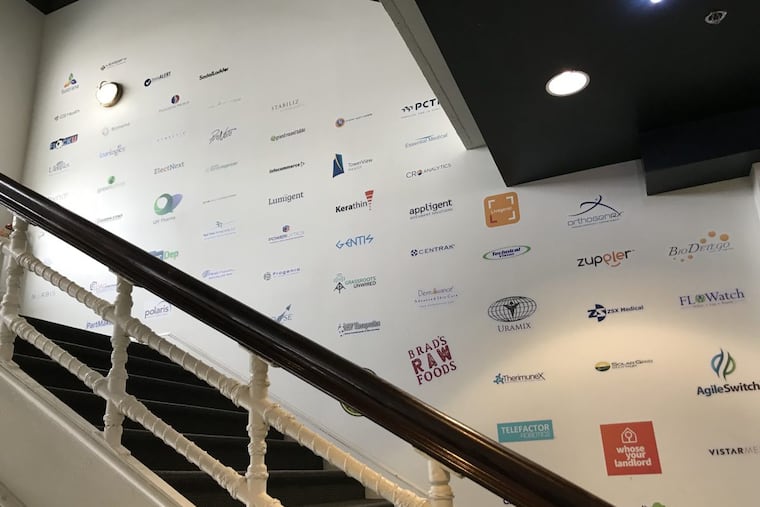How Philly-area businesses and start-ups can tap into $584M in new federal funding
$584 million in federal funding has been targeted for businesses in the Delaware Valley under the State Small Business Credit Initiative program.

Millions in federal funding is earmarked for Pennsylvania, New Jersey, and Delaware to help small businesses. But where does it come from and how can local entrepreneurs get it?
The money is coming from a new $10 billion funding round approved by Congress for the State Small Business Credit Initiative (SSBCI), a program from 2010 that, at the time, provided $1 billion in funding to states, territories, and eligible municipalities to help grow their investment, loan, and venture capital infrastructure for small businesses.
Pennsylvania’s share — approximately $268 million — was approved last year, and earlier this month the Treasury Department authorized $61 million in funds for Delaware and $255 million for New Jersey businesses. Of course, just because the money has been approved doesn’t mean it’s coming quickly. Which means that if you’re running a small business in the area, there’s still time to take advantage. But you better act quickly.
» READ MORE: This small business grant will help Philly employers provide a living wage and benefits to local residents
SSBCI funding started at the federal level and is being disbursed from the Treasury Department to each state. The states are then tasked with allocating their funds to local organizations that are serving small businesses through loans, grants, and equity investments.
How businesses can get funding in Pennsylvania
For example, in Pennsylvania, Bruce J. Katz, an urban policy expert and the Director of the Nowak Metro Finance Lab at Drexel University, said that about half of the state’s SSBCI funding will flow through the Ben Franklin Technology Partners and Life Sciences Greenhouses, a network of seven public-private regional entities that make equity investments in emerging companies in sectors like technology and life sciences.
The SSBCI funding will hopefully “create new channels for capital to flow, including climate investments targeted under the Inflation Reduction Act and diverse suppliers needed to fulfill contracts under the Bipartisan Infrastructure Law,” said Katz. “It will help fund small firms and industries needed for domestic manufacturing.”
Jason Bannon, a vice president at the Ben Franklin Technology Partners of Southeastern Pennsylvania, which is one of four regional centers operated by the organization, believes that the money will help not only start-ups in the area, but early-stage companies in a tough economic and financing environment.
» READ MORE: Should small-business owners be concerned about the SVB collapse?
“We are hoping these dollars will help companies continue to grow and find opportunities to scale while there is this uncertainty of the market,” he said. “For our companies, it’s a matter of making sure that they stay growing while other regions, territories, markets are less certain for growth.”
The majority of Pennsylvania’s remaining allocated funds “will flow through the state’s Community Development Financial Institutions (CDFIs) and Certified Economic Development Organizations,” said Katz, “They’re also a mix of Small Business Administration lenders and public or quasi-public local authorities that will be able to fund companies through a revolving loan fund program.”
New Jersey will use the money to fund multiple programs
According to New Jersey state officials, two of the equity/venture capital programs — a $20 million SEDI (Socially and Economically Disadvantaged Individuals) Seed Fund and a $60 million Life Science Investment program — will provide equity support to underserved businesses and qualified life sciences businesses. The Angel Match Program, which received $20.2 million, will invest directly in early-stage, product-based technology companies.
New Jersey has also allocated $80 million to the Clean Energy Business Financing Program, a loan participation program that will provide loans to small businesses to deploy clean energy technologies and will provide money to support small-business lending by CDFIs and minority depository institutions in the state.
“Small businesses are the heart of New Jersey’s economy, and during these difficult past few years, New Jersey Economic Development Authority has shown its ability to deploy funding to small businesses where it is needed efficiently,” New Jersey Treasurer Elizabeth Maher Muoio said in a news release. “I am confident that the new programs created by NJEDA with this federal funding will make a lasting difference for New Jersey’s small businesses.”
Delaware will help businesses access capital
Delaware will put its SSBCI money into four programs that will open credit lines or access to working capital for small businesses and entrepreneurs in the state including the Capital Access Program (a loan loss prevention fund), the Loan Participation Program (which increases access for businesses to capital at lower interest rates), and two other capital programs that will support the formation of new venture capital funds and business accelerators focused on underserved and idea-stage start-ups. More details for these programs can be found here.
How long will it take to access the funding
Both Katz and Bannon expect to see funding for various SSBCI programs distributed over the next two to three years.
Bannon said that his organization will be seeking investment opportunities throughout the state, but the application process can be “complicated” so it’s important to reach out now. Katz recommended the same. Both believe the program will be vital for local businesses.
“The intent of SSBCI is ambitious and its potential is far-reaching,” Katz wrote in a recent blog post. “It is meant both to unlock capital for the reshaping of the US economy and address racial, ethnic, and spatial disparities. We are only at the beginning of a decade of SSBCI investment that will be a remarkable experiment in federalized program delivery.”